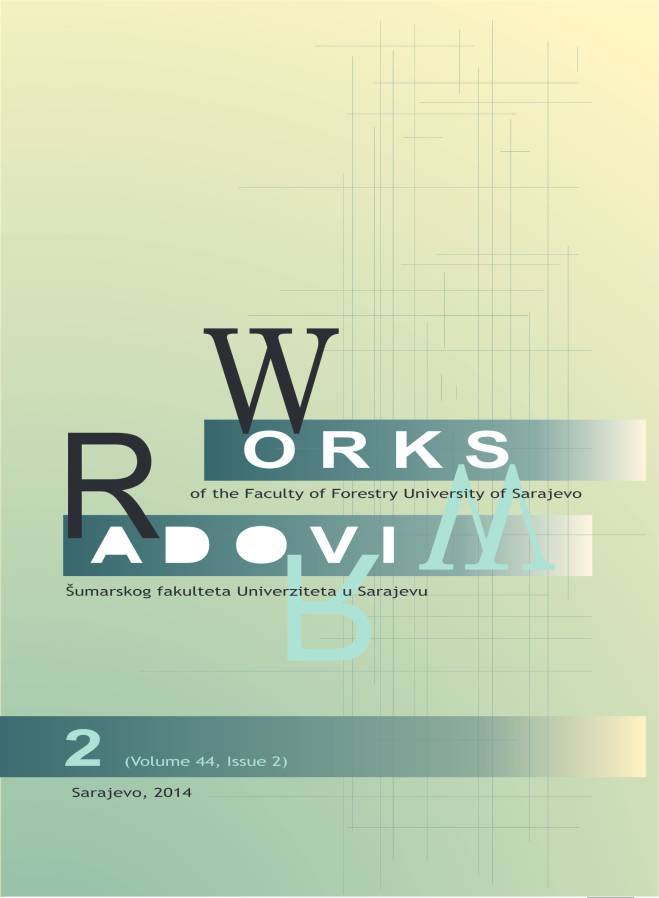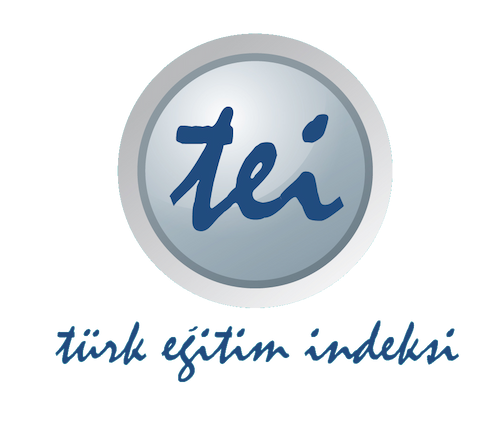FORESTRY PROFESSIONALS' AWARENESS OF THE EU TIMBER REGULATION IN THE FEDERATION OF BOSNIA - HERZEGOVINA
DOI:
https://doi.org/10.54652/rsf.2014.v44.i2.98Keywords:
Illegal logging, European Union, FLEGT, EUTR, forestry professionals, Federation of Bosnia -HerzegovinaAbstract
UDK: 630*93:630*68(497.6)
Illegal logging and related trade represent one of the most important forest-related issues at international policy scene. In 2002, the European Union had initiated establishment of regional initiatives on preventing trade of illegally harvested wood, well known as FLEGT process. Other important segment of European Union efforts is adoption of legally-binding Regulation No. 995/2010 - EU Timber Regulation (EUTR) that prohibits import of illegally harvested wood and their products into EU. Bosnia-Herzegovina is country with economy in transition and with relatively slow progress toward EU integration process, while rising of awareness on need for prevention and combat with illegal activities and corruption represent one of the mayor challenges for its society. This paper analyse forestry professionals’ awareness of the EU Timber Regulation in the Federation of Bosnia-Herzegovina as precondition for planning further steps on improving human and institutional capacities in forest sector to prevent and combat with illegal activities. In order to conduct the analysis of forestry professionals’ awareness on EUTR, survey was conducted among currently employed forestry professionals in forest sector of the FB-H. Results revealed that employed forestry professionals in the FB-H have different level of awareness on EUTR. Therefore, creation and consistent implementation of informational forest policy instruments are needed in order to increase capacities of forestry professionals related to elements of EUTR implementation process. Efforts on prevention and combat with illegal activities in forest sector should involve implementation of mix of forest policy instruments directed toward harmonization of forest policy in the FB-H with EUTR requirements based on active participation of forestry professionals that are aware of EUTR implementation process and its potential influences on forest and wood-processing sectors of the FB-H.
Downloads
References
AVDIBEGOVIĆ, M. (2001): The Application of FSC Principles as External Standards of Forest Certification in Bosnia and Herzegovina, Radovi Šumarskog fakultetaUniverziteta u Sarajevu, Vol. 31, br. 1.
AVDIBEGOVIĆ, M., KRILAŠEVIĆ, E., SELMANAGIĆ, A. (2006): Collision between Regulations in Forest Law and Environment Related Legislation in the Federation of B-H, IUFRO Division 6, RG 6.13.00 - Social, Economic, Information and Policy Sciences, Proceedings of the 8th International Symposium on Legal Aspects of European Forest Sustainable Development, Department of Forest Law, Faculty of Forestry, Istanbul.
AVDIBEGOVIĆ, M., ŠAKOVIĆ, Š.,KORIČIĆ, Š. (2003): The cross-sectoral dialogue as a basis for definition of internal certification standards in B-H, Proceedings of the First symposium about veterinary, agriculture and forestry in B-H, Faculty of Forestry in Sarajevo, Sarajevo.
BRAJIĆ, A., MUTABDŽIJA, S., AVDIBEGOVIĆ, M., MARIĆ, B., BEĆIROVIĆ, DŽ., GRAŠIĆ, T., NIKOLIĆ, V., NEVENIĆ R., PEZDEVŠEK MALOVRH, Š. (2011): Forest Related Legislation in Some Western Balkan Countries Referring to Nature Protection Regulations, Radovi Šumarskog fakulteta Univerziteta u Sarajevu, Vol. 41, br. 2.
COMMİSSİON OF THE EC (2008): Proposal for a Regulation of the European Parliament and of the Council Laying down the obligations of operators who place timber and timber products on the market, Brussels, [Available at: www.ec.europa.eu].
DILLMAN, D.A. (2007): Mail and Internet surveys: The tailored design method, Second ed., John Wiley & Sons, New Jersey.
FIELD, A. (2009): Discovery statistic using SPSS, Sage publications Ltd., third edition, London.
MUTABDŽIJA, S. (2013): Cross-sectoral perception of forest governance concept in the Federation of Bosnia-Herzegovina, Final work of the Second cycle of the study, Faculty of Forestry University of Sarajevo, pg. 18.
NULTY, D. D. (2008): The adequacy of response rates to online and paper surveys: What can be done?, Assessment and Evaluation in Higher Education, Vol. 33, No. 3, June 2008, 301-314. [Available at: www.uaf.edu]
REGIONAL ENVIRONMENTAL CENTER - REC (2010): Illegal Logging in South Eastern Europe, [available at: www.envsec.org].
TACCONI, L. (2008): Illegal Logging: Law Enforcement, Livelihoods and the Timber Trade, Earthscan, London.
THE EUROPEAN PARLIAMENT AND THE COUNCIL OF THE EUROPEAN UNION (2010): Regulation (EU) No 995/2010 of the European Parliament and of the Council - EUTR, Brussels, [Available at: www.ec.europa.eu].
UNITED NATIONS OFFICE ON DRUGS AND CRIME – UNODC (2011): Corruption in B-H – Bribery as experienced by the population, Vienna, [Available at: www.unodc.org].
URQUHART, J., COURTNEY, P. (2011): Seeing the owner behind the trees: A typology of small-scale private woodland owners in England, Forest policy and economics, 13 (2011), pp. 535-544.
VANJSKOTRGOVINSKA KOMORA BIH – VTK B-H (2014): The economy of B-H – The proposal for improvement of business environment, Sarajevo, [Available at: www.komorabih.ba].
WORLD WIDE FUND FOR NATURE - WWF (2008): Illegal wood for the European market - An analysis of the EU import and export of illegal wood and related products. [Available at: www.wwf-ue-2008.org/download/4/].






















